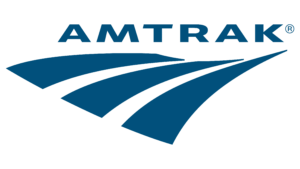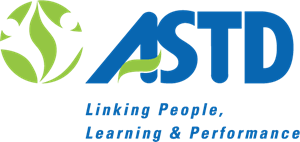Professional Development
Professional development offers the opportunity to learn and apply new knowledge and skills that helps in their job and furthers their career. Professional development is all about building your skill set and knowledge base.
- Customer Relationship Management
- Persuasion and Influencing
- Exemplary Leadership Skills
- Managing and Supervising Effectively
Mastering Profitable Relationships
What is it about your organization’s customer relationship management practices which identify you as competitive , unique or first-class ? Who are your customers? What do they want? How we can more effectively persuade our existing customers to purchase more of our products and services, while referring even more prospective new customers our way? We’ll talk about how to deal with some of the “newer” challenges to our effectiveness, including faster information velocity, capacity, bandwidth and our own mobility. You’ll leave with a “Top 25 Tip List” for gaining repeat business and new business!
To ensure profitable relationships with customers, among the questions we need to ask ourselves and prepare to ask our customers are:
- Who are our customers?
- Who are our clients?
- What makes a customer a client?
- How many transactions do we need to truly make a customer a client?
- What are the quality measures our customers use with us to decide if they are interested in a long-term relationship?
- What do our customers need?
- What do our customers want?
- What questions may we ask to help solve customer problems?
- How may we continue to remain customer-focused in everything we do?
- What techniques are we using which are already effective with customers?
- Why do our best customers choose to do business with us and continue doing business with us?
- How effectively can we repeat with everyone those behaviors which our satisfied customers value?
- How regularly are we contacting and communicating with customers?
- Are we engaged in “quality communication” with customers?
- Are we continually “present” with our customers?
- How can we be sure we are continually providing value to customers?
- What Customer Relationship Management technologies are we using to communicate effectively with customers and prospective customers?
- How effectively are we using these CRM technologies?
- How proactively are we contacting customers and prospects to identify their needs?
- How proactively are we engaging existing customers to continually identify their additional needs and anticipate their future needs?
- What are we doing to effectively close sales?
- What are we doing to master profitable customer relationships?
Approaching the Customer
- Offering an appropriate greeting
- Expressing empathy
- Remembering the value of long-term customers
- Making customers “feel special”
Communication Skills
- Body Language
- Spoken Communication
- Written Communication
- Face-to-Face Communication
- Telephone Skills
- Obtaining and retaining important customer information
Developing a Winning Attitude
- The Power of Positive Thinking
- Handling Stress
- Handling Complaints
- Winning Back Unhappy Customers
Empowerment Means Customer Retention and Referrals
- Taking Responsibility
- Using Common Sense
- Effective Listening Techniques Never Go Out of Style
- “Why should I want to come back?”
- “Were you satisfied?”
- “Who else do you know who would benefit from our service?”
Day One
INFLUENCE STYLES
- Approaches to influence
- Identifying your style
- Pros & Cons of each style
- Skills needed for each
PLAN TO INFLUENCE
- What do you need/want?
- Defining objectives
- Clarifying your values
FIRST PRACTICE
- What was difficult?
- What would help?
- “Real-Life” cases
CREATING RAPPORT
- The key skill for rapport
- What to notice in others
- Matching perceptions
EXPECTATIONS & RESULTS
- Self-fulfilling prophecy
- Your expectations of self & others
EFFECTIVE LISTENING
- How do you listen now?
- Risks & roadblocks
- Active Listening Skills
- Adding Empathy II.
Day Two
GAINING COMMITMENT
- Assessing the other(s)
- What do I want from them?
- How to ask for it
- What did I learn?
BUILD ASSERTIVENESS
- Win-lose approaches
- Win-win approaches
- How to recognize each style
- Practice exercise· Some Do’s & Don’ts
- Body Language
INFLUENCE IN GROUPS
- Influence and leadership
- Task-related behaviors
- Relationship behaviors
- Behaviors that help in both areas
- Counterproductive actions to avoid
GROUP EXERCISE
- What did you do well?
- Where can you improve?
WIN-WIN INFLUENCE
- Guidelines & reminders
- Follow-up report
It’s Not Just for the CEO
What are the “Eight Most Important Qualities of Effective Leaders”? How can you practice these leadership qualities every day? What skills, knowledge and expertise do you need in order to be an effective leader? What are people looking for in a leader? Please bring your greatest “leadership challenges” to the table, so we can discuss collaboratively and help you solve them!
Leadership is what you make of it. What skills do you develop and hone? What are people looking for in a leader? Is there great value in “practicing what you preach”? How do you model the behavior you expect from employees?
In this program, attendees will learn:
- The qualities which great leaders possess and exhibit
- Why committing to leadership will save them time and frustration, in addition to contributing to a healthier workplace
- How to commit consistently to exemplary leadership
- The numerous situations where corporate leaders have learned the lasting lessons of leadership
We will discuss the 7 qualities which comprise a great leader:
- Commitment — dedication both cerebrally and viscerally to excellence
- Visibility — direct participation in delivering customer service and quality
- Accountability — practicing what you preach
- Communicative — careful listening, diligent inquiry, prompt responses, focused follow-up, assurances of mutual “buy-in” to performance objectives
- Visionary — one eye on the future, ready to anticipate change
- Effective team-builder — gainer of consensus, cooperation, idea exchanger
- Succession planner/developer of leaders — always with both eyes on the future of the organization
We will discuss why committing to leadership will save time and frustration, contributing to a healthier workplace, based on a consistently proven insight: When individuals are empowered to contribute in analyzing the problem, they will work much harder and smarter at devising and contributing to the solution.
We will explore how valuable it will be to commit each and every day to leadership, because employees and colleagues will observe and practice your actions, not your words.
We will review and assess the countless lessons corporate leaders have learned from both exemplary and poor leadership behavior.
The focus of our programs is experiential. We work with you before, during and after our program to ensure concepts are learned and practiced. Before, we ask you for examples of “real-life” situations, issues and people you are dealing with and for which you might wish help. During, we use as many of your examples as time allows, so you may benefit from peer feedback. Afterward, we work with you and your managers to ensure learning concepts are practiced, so we can measure and verify performance improvement.
Develop and refine effective management skills to strengthen the present and build for the future.
Building effective management skills starts with Pinnacle Performance management instruction. We offer you introductory and advanced management skills seminars to help you develop and refine the skills you need to manage people more effectively.
Explore topics critical to developing effective management skills such as performance management, motivation, team development, interpersonal and communication skills and time management skills—everything you need to manage people effectively. Register today to give yourself and your staff the performance management advantage only Pinnacle Performance management skills seminars offer.
Note: Each of bulleted topic below is a stand-alone course. Just e-mail us at seminars@ppiw.com.
Essential Management Skills
- Management Skills for New Managers
- Successfully Managing “Difficult” People
- Improving Your Managerial Effectiveness
Preparing for Management
- Making the Transition to Management
- Getting Results Without Authority
Enhancement Skills
- Strategic Planning Essentials
- Coaching and Mentoring for Outstanding Job Performance
- How to Build a More Positive Work Environment
- Interviewing Skills for Managers and Supervisors
- Planning and Managing Organizational Change
- Project Management Essentials
- Creating a Culture of Trust: Management Strategies That Get Results
- Managing Multicultural Teams for Peak Performance
- Moving from an Operational Manager to a Strategic Thinker
- Creating High-Performing Teams: Leadership and Team Development
- Finance for Non-Financial Managers
Time Management
- Managing Chaos: Tools to Set Priorities and Make Decisions under Pressure
- Time and Task Management: Working Smart










